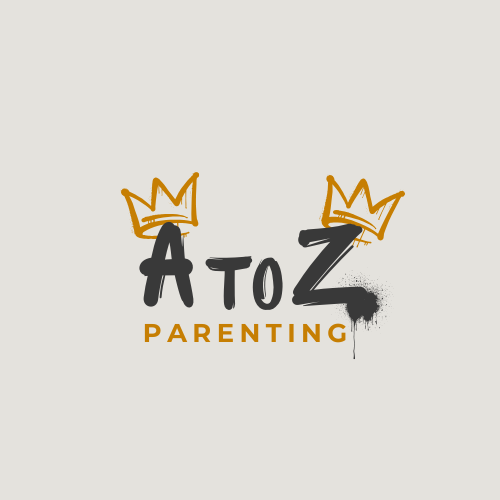Healing the Past: The Essential Journey for Every Parent
Turn Your Childhood Trauma Into Fuel to Be a Great Parent
Overcoming childhood trauma is not just a personal journey;
it’s a critical undertaking for anyone who aspires to be the best parent they can be.
Don’t forget, if you’re looking for parenting articles, information, and discussions, you’ll want to follow the newly created A to Z Parenting, where Anthony Migliorino and I have teamed up to bring our Pro-Peaceful Parenting Philosophy to the masses in one location.
To Lead Another, We Must Know Our “Self”
In life, we often underestimate the impact of our past experiences on our interactions, especially with our children.
It’s uncomfortable to think of the negative aspects of our upbringing, and this causes many adults and parents to forego any analysis of how they were raised. Instead, they choose to “let bygones be bygones” and follow the blind, unsupported statement that "your parents did their best.”
That was not the case for many, and I do not believe we should pretend otherwise.
So, why is confronting our childhood traumas essential for healing and pivotal in shaping resilient, grounded individuals who will someday evolve into their unique selves and possibly create lives they must lead?
First, let’s acknowledge that childhood trauma comes in countless forms—abandonment, physical/emotional abuse, neglect, or a constant state of anxiousness in a household cloaked with stress and chaos.
These experiences don’t merely fade away with time; they linger, burying themselves within the fabric of our identities.
The wounds we carry can manifest in myriad ways—unhealthy relationships, emotional disconnect, addiction, sexual obsession, self-harm, or even behavior patterns that we unknowingly impose on the next generation. If we haven’t taken the time to confront and heal from these past scars, we risk handing down our unresolved pain to our children, perpetuating cycles of dysfunction.
Many parents feel overwhelmed by the responsibilities to their kids, to the point they forget to ever treat themselves like a person who they also have to support.
Parenthood demands attention, patience, and unconditional love.
It is easy to become so engrossed in fulfilling the endless obligations that we overlook the importance of our internal landscape. Yet, to nurture our children and provide them with the emotional support they need, we must first address the shadows looming within us.
“No matter how often you clean the house, you’ll never be free from the stress of a cluttered mind.”
- Zac Small
Only through facing our narrative can we create a safe environment for our children to express their fears, emotions, and curiosities without the weight of our burdens pressing down upon them. A parent who has yet to address their trauma may find themselves responding out of character due to a trigger from the past. That uncontrolled reaction may cause an issue with your child or show them they cannot trust you regarding that subject matter; thus, they’ll hide it.
Emotional regulation and intelligence are cornerstones of good parenting, and both begin with self-awareness.
When we recognize and name our emotional responses fueled by past traumas, we model healthy emotional navigation for our children. They need to see how we process pain, disappointment, and fear to develop resilience themselves.
You don’t just want to teach them how to cope;
You want to demonstrate it…
When parents address their past, they cultivate a nurturing space that allows open dialogue about feelings. Children who grow up with this foundation are better equipped to face challenges with courage and integrity.
Moreover, overcoming childhood trauma fosters empathy—a vital element in parenting.
When we heal and develop a keen understanding of our struggles, we become more compassionate and understanding toward others, including our children. We start to see them not just as family members but as individuals with their own unique emotions and experiences. This shift in perspective allows us to stop projecting our fears and opens doors to deeper connections. Acknowledging our flaws and vulnerabilities fosters a sense of shared humanity, allowing our children to thrive under the guidance of someone who understands the weight of emotional complexity.
It’s Possible to Break the Cycle
By facing our traumas head-on, we set in motion a transformative process that can potentially alter the course of generations. By choosing to heal, we’re not just improving our own lives; we’re actively reshaping the narrative for our children, liberating them from the chains of an inherited past.
It is a conscious decision to rewrite the story in a way that embraces hope, resilience, and the potential for greatness. When we confront our challenges, we invite our children to envision a future untainted by the burdens we once carried.
Overcoming childhood trauma is essential for any parent seeking to be the best mother or father they can be.
It requires vulnerability, courage, and a commitment to self-growth. Yet, this journey is not just about us; it’s a profound gift to our children. By choosing to heal, we create a nurturing environment where they can flourish emotionally, develop empathy, and be empowered to lead lives grounded in understanding and love.
The ripple effects of this work transcend the individual, paving the way for a brighter, more hopeful future—one where we all thrive.
- Zac



